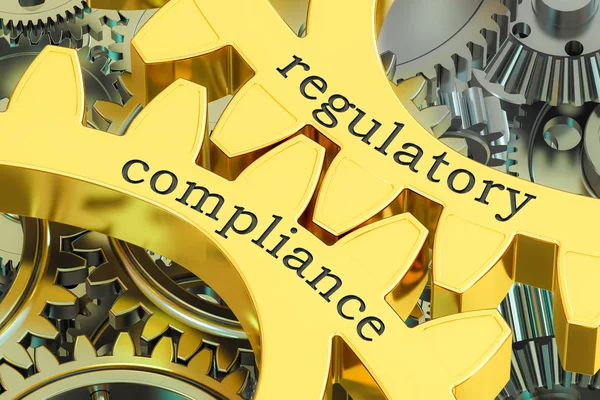The foreign exchange market, commonly known as Forex, is the largest financial market in the world, with a daily trading volume exceeding $5 trillion. For many traders, both novice and experienced, finding the perfect Forex broker is crucial to their success in the market. A broker acts as an intermediary between the trader and the market, providing access to trade currencies, commodities, and other financial instruments. With so many options available, selecting the right broker can be a daunting task. In this guide, we will discuss important factors to consider when choosing a Forex broker, including reputation, fees, trading platforms, customer support, and regulatory compliance.
Choosing the Right Broker
When selecting a Forex broker, it’s essential to consider your trading style, goals, and experience level. Some brokers cater to beginners with user-friendly platforms and educational resources, while others are geared toward seasoned traders with advanced tools and analytics. Additionally, consider the types of currency pairs and other instruments offered by the broker. Make sure they align with your trading preferences and strategies. It’s also important to compare the leverage options provided by different brokers, as this can significantly impact your trading potential and risk exposure.

Choosing the right broker also involves evaluating their account types and minimum deposit requirements. Some brokers offer micro or mini accounts with low minimum deposits, ideal for those starting with a small trading capital. Others require larger deposits and offer standard or premium accounts with more features and benefits. Make sure the broker you choose has account options that suit your financial situation. Furthermore, consider the broker’s execution speed and reliability. Fast and accurate trade execution is crucial in the fast-paced Forex market, and any delays can result in missed trading opportunities or losses.
Lastly, consider the broker’s customer service and support. A good broker should offer responsive and knowledgeable customer support to assist you with any issues or questions you may have. Look for brokers with multiple channels of communication, such as phone, email, and live chat. Additionally, check if the broker offers support in your preferred language and during the hours you are likely to trade.
Evaluating Broker Reputation
Reputation is a critical factor when selecting a Forex broker. A reputable broker will have a proven track record of reliability, transparency, and fair trading practices. Start by researching the broker’s history and background. How long have they been in business? Have they received any industry awards or recognition? Are there any major complaints or regulatory actions against them? These are important questions to ask when evaluating a broker’s reputation.

Another way to gauge a broker’s reputation is by reading reviews and testimonials from other traders. Look for reviews on independent websites and forums where traders share their experiences with different brokers. Pay attention to both positive and negative feedback, and look for patterns or recurring issues that may raise red flags. Keep in mind that no broker is perfect, and some negative reviews are to be expected. However, if the majority of reviews are negative, it may be a sign to steer clear of that broker.
It’s also important to consider the broker’s regulatory status. Reputable brokers are typically regulated by one or more financial authorities, such as the Financial Conduct Authority (FCA) in the UK, the Commodity Futures Trading Commission (CFTC) in the US, or the Australian Securities and Investments Commission (ASIC). Regulatory oversight ensures that brokers adhere to strict financial standards and provide a level of protection to traders. Always verify the broker’s regulatory status and check if they are authorized to operate in your country.
Understanding Fees and Spreads
Fees and spreads are an integral part of Forex trading, and it’s crucial to understand how they can impact your profitability. Most Forex brokers make money through spreads, which are the difference between the bid and ask price of a currency pair. Brokers offer either fixed or variable spreads, and the type you choose can depend on your trading style and market conditions. Fixed spreads remain constant regardless of market volatility, providing predictability in trading costs. Variable spreads, on the other hand, fluctuate with market movements and can be lower during periods of high liquidity.
In addition to spreads, some brokers charge commissions on trades. Commissions are typically based on the trade volume and can vary widely between brokers. It’s important to calculate the total cost of trading, including both spreads and commissions, to determine which broker offers the most competitive pricing for your trading strategy. Also, be aware of any additional fees, such as account maintenance, withdrawal, or inactivity fees, which can add up over time.
When comparing fees and spreads, don’t be tempted to choose a broker based solely on the lowest costs. Low spreads and commissions may come with trade-offs, such as poor execution quality or limited customer support. It’s essential to find a balance between competitive pricing and the overall quality of the broker’s services.
Assessing Trading Platforms
A broker’s trading platform is your gateway to the Forex market, and it should be user-friendly, reliable, and packed with the necessary tools for analysis and trade execution. Most brokers offer proprietary platforms or third-party platforms like MetaTrader 4 (MT4) or MetaTrader 5 (MT5). Consider the platform’s interface, ease of use, and customization options. A good platform should provide a seamless trading experience, with intuitive navigation and the ability to personalize your trading environment.
The availability of technical analysis tools and indicators is also crucial. Look for platforms that offer a wide range of charting tools, including various timeframes, chart types, and technical indicators. These tools are essential for conducting market analysis and developing trading strategies. Additionally, consider the platform’s automation features, such as the ability to use expert advisors (EAs) or create custom scripts for automated trading.
Mobile trading is becoming increasingly important for traders who want to access the markets on the go. Ensure the broker offers a robust mobile trading app that allows you to manage your trades, monitor the markets, and receive real-time alerts and notifications. The app should be compatible with your mobile device and offer a similar range of features as the desktop platform.
Importance of Customer Support
Customer support is a vital aspect of the broker’s services and can significantly impact your trading experience. A broker with excellent customer support can provide timely assistance, resolve issues quickly, and help you navigate the complexities of Forex trading. Look for brokers that offer 24/5 customer support to match the trading hours of the Forex market. This ensures that you can get help whenever you need it, regardless of your time zone.

The quality of customer support can vary widely between brokers. Consider the broker’s responsiveness, professionalism, and knowledgeability when dealing with customer inquiries. Test their support channels by reaching out with questions or concerns and evaluating the speed and quality of their responses. A good broker should prioritize customer satisfaction and provide clear, concise, and helpful answers.
Additionally, check if the broker offers educational resources and tools to help you improve your trading skills. This can include webinars, tutorials, market analysis, and economic calendars. A broker that invests in their clients’ education demonstrates a commitment to their success and can be a valuable partner in your trading journey.
Regulatory Compliance Matters
Regulatory compliance is a critical aspect of a broker’s credibility and should not be overlooked. A regulated broker is subject to oversight by financial authorities and must adhere to strict standards for financial reporting, capital adequacy, and customer protection. This provides a layer of security for traders and ensures that the broker operates transparently and ethically.
When assessing a broker’s regulatory compliance, verify their licensing and registration with the relevant authorities. Check the regulator’s website for a list of authorized brokers and any past disciplinary actions or fines. A broker with a clean regulatory record is generally a safer choice than one with a history of violations or sanctions.

Regulatory compliance also involves the segregation of client funds. Reputable brokers keep their clients’ funds in separate accounts from their own, protecting them in case of the broker’s insolvency. Ensure that the broker you choose follows this practice and offers additional protection, such as insurance schemes or compensation funds, to safeguard your investment.
Selecting the perfect Forex broker is a critical decision that can influence your trading success. By considering factors such as broker reputation, fees and spreads, trading platforms, customer support, and regulatory compliance, you can make an informed choice that aligns with your trading goals and preferences. Remember to conduct thorough research, compare multiple brokers, and test their services before committing to an account. With the right broker as your partner, you can confidently navigate the Forex market and pursue your trading objectives.

